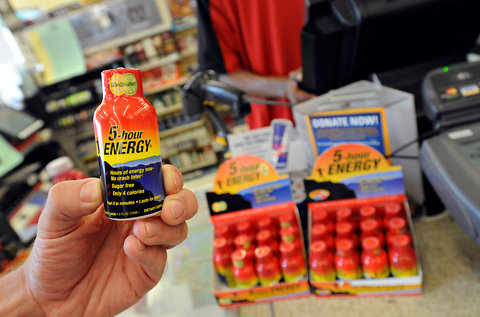
Case Intel
- A federal court issued a ‘time-served’ sentence to a Mexican national in a 5-Hour Energy counterfeiting case, effectively letting him walk free.
- The court ordered $556,000 in restitution—money the brand will likely never see.
- Immigration enforcement now faces the task of tracking the convicted man, whose deportation eligibility complicates restitution recovery.
By Samuel A. Lopez | USA Herald
LOS ANGELES, CA – A California federal court’s decision to hand down a time-served sentence to a Mexican national convicted of counterfeiting 5-Hour Energy drinks has sparked fresh debate over what “justice” really means when restitution is unlikely to ever reach the victim.
The October 3, 2025, sentencing—requiring nearly $556,000 in restitution to the manufacturer, Living Essentials LLC—appears on paper to be a win for intellectual property enforcement. In reality, it’s a hollow victory. The defendant, a foreign national from Mexico, walked out of court a free man. However, under the Trump administration’s current immigration policy, that conviction renders him ineligible to remain in the United States, leaving ICE to now locate, detain, and deport him.
And once deported, it’s all but certain Living Essentials will never recover a single dollar of the court-ordered restitution.
This case exposes a troubling gap between legal symbolism and practical enforcement. While the court recognized the economic harm to 5-Hour Energy, its decision to impose time served effectively released a convicted counterfeiter into administrative limbo—neither punished nor rehabilitated, and now beyond the reach of financial recovery.
That outcome leaves Immigration and Customs Enforcement (ICE) in the familiar position of cleaning up after the judiciary’s leniency. The agency must now locate a convicted criminal who, by virtue of his status, will likely attempt to evade deportation. For a company that has already lost hundreds of thousands of dollars to counterfeit operations, the sentence delivers no deterrent effect and no meaningful restitution.
The 5-Hour Energy brand—once the undisputed leader in the energy-shot market—has been fighting off both legal and market challenges for years. Counterfeiting has long eroded its reputation, but so too has the rise of formidable competition, particularly from Vitamin Energy, which has carved out market share by positioning itself as a healthier alternative.
While Living Essentials continues to invest heavily in intellectual property enforcement, some industry analysts argue that brand protection alone isn’t enough to restore consumer trust. “The counterfeiting crisis is both a legal and a brand perception issue,” I’ve often said in my reporting. “When counterfeiters flood the market, even a loyal customer base starts to question authenticity—and that’s a brand wound no amount of litigation can easily heal.”


